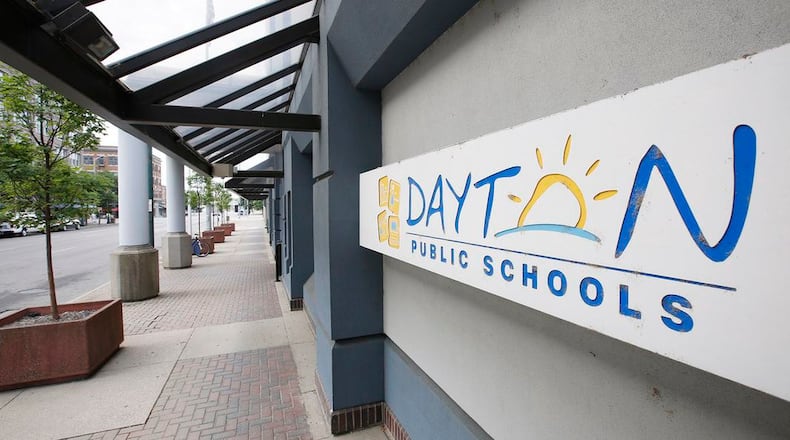Dayton schools had delayed the start of in-person classes for at least the first quarter because of the coronavirus pandemic, so no students were in the schools. But teachers and other staff went back to work in those buildings Aug. 24.
Legionella bacteria can trigger Legionnaires’ disease, a type of pneumonia that can be fatal. Teachers union President David Romick was angry that testing was not completed before staff returned to work.
“It’s unconscionable that these buildings are just now being tested when clear guidance on reopening buildings after prolonged closure was issued by the Ohio Department of Health on April 30,” Romick said Monday.
Romick said the union makes members’ health a priority, and has requested the results for DPS buildings that tested negative “in order to ensure full transparency and the peace of mind of our educators and their families.”
District officials said they decided to test the water at 11 randomly chosen buildings, after other schools found Legionella bacteria in buildings that sat unoccupied for several months during the COVID-19 response.
The school district’s statement said DPS will follow Environmental Protection Agency guidance and take immediate steps “for the protection of staff:”
1. All water lines at Eastmont, Louise Troy and Ludlow II will be flushed and chlorinated.
2. All water fountains in the buildings will be temporarily turned off.
3. Bottled water has been provided to individuals working in these buildings.
4. Another Legionella test will be conducted at those three buildings in a few weeks, per EPA recommendations.
The district is also testing all remaining buildings. Buildings that have already been tested include: Ludlow II, Louise Troy, Eastmont, Belmont, Cleveland, Fairview, Kiser, E.J. Brown, Stivers, Thurgood, and the DPS service building, according to the release.
Water tests this summer revealed Legionella bacteria at school buildings in the Oakwood, Northmont, Vandalia-Butler and Kettering school districts. Health officials say the bacteria risk is higher when water sits stagnant for long periods, as it does during schools’ summer break -- a break that was lengthened by this spring’s shutdown.
According to the Centers for Disease Control and Prevention, Legionnaires’ disease is a type of pneumonia that often requires antibiotics and hospital care. The CDC says most cases can be treated successfully, and healthy people usually get better. But about 10 percent die due to complications.
In Kettering, one school custodian tested positive for Legionnaires Disease this summer. Another custodian who worked there died of Legionnaires disease in 2019.
Dan Suffoletto, spokesman for Public Health Dayton & Montgomery County, said last month that Legionella occurs fairly widely, so it’s difficult to determine where a person contracted Legionnaires’ disease from.
DPS officials said they are working with county health officials to determine the best course of action going forward. If any additional buildings test positive for Legionella, the district said it will notify staff, families and the media, and take appropriate action.
About the Author

